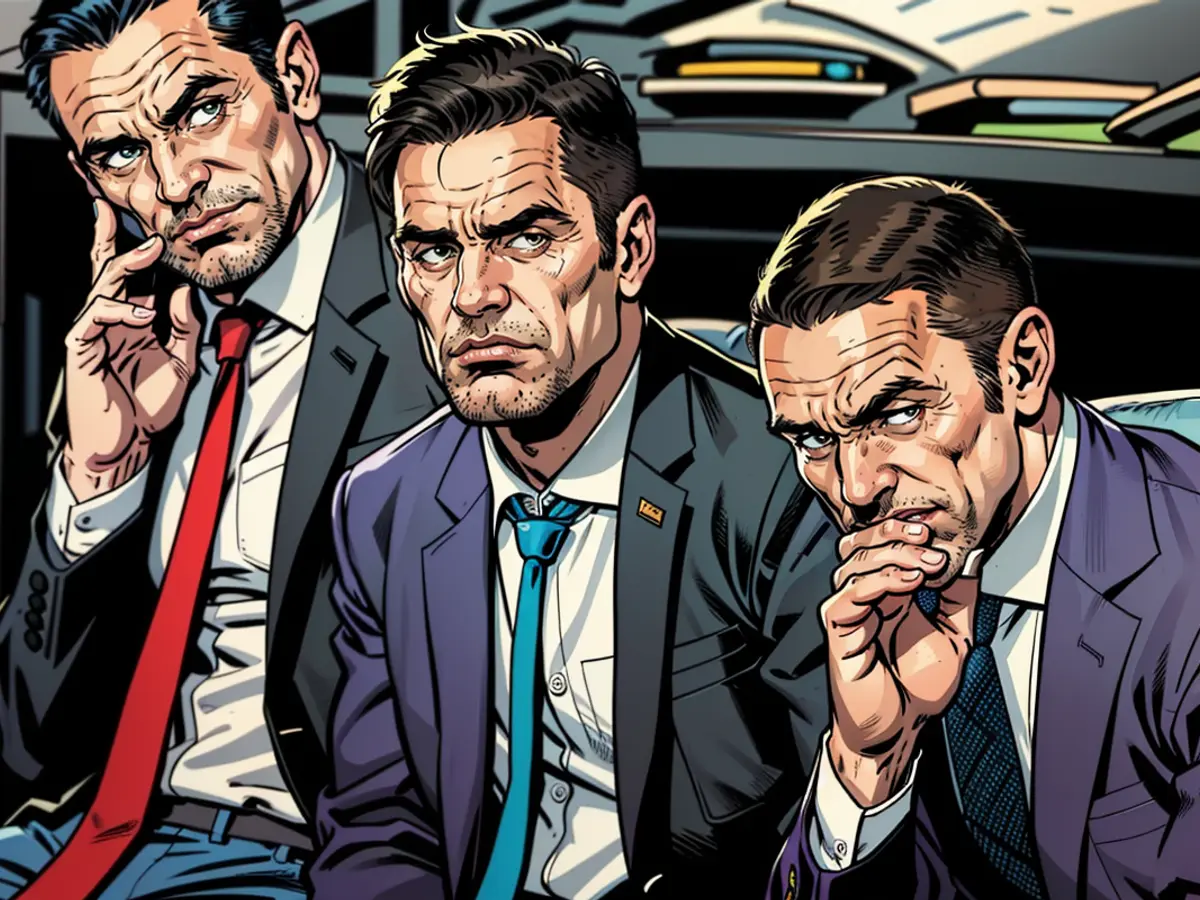- Who wants what in a traffic light budget fight?
They're still not on the same page. It's been just over five and a half weeks since the three leading figures of the traffic light coalition government announced: The budget for the coming year is ready. But it's long been clear that not everything they had in mind is working. There's still a financing gap of over five billion euros. And so they're negotiating again - Chancellor Olaf Scholz, his Finance Minister Christian Lindner, and Vice-Chancellor Robert Habeck - not necessarily all night in the Chancellery, but with video calls from vacation. Telephone diplomacy, traffic light style.
In essence, it's about a manageable sum. With a total budget of 480 billion euros, five billion shouldn't make much of a difference. But the truth is also: The largest part of the money is tied up by legal commitments, the room for setting one's own priorities isn't that big. But the debate among the traffic light coalition is about more than just the 2025 budget and the basic orientation of financial policy between saving and debt. It's also about who's right and who's backing down, especially so close to the next federal election.
Above all, Scholz and Lindner, who initially got along surprisingly well at the beginning of their government term, are at odds. The budget draft is supposed to be sent to the Bundestag on Friday, but there's been no sign of rapprochement so far. Instead, there are discrepancies because Lindner rushed ahead with the interpretation of two legal opinions - and Scholz publicly rebuked him in an unprecedented manner. At least since then, the question has been: Who actually wants what in these budget negotiations?
The Chancellor: Fan of unusual ideas
Even as Finance Minister, SPD politician Scholz was known for suddenly pulling an unusual idea out of his hat in seemingly hopeless situations. Lateral thinking worked well with EU aid during the corona pandemic. But it also went wrong: Last year, the Constitutional Court struck down the idea of repurposing billions in corona loans for climate protection. The ruling plunged the traffic light into a severe budget crisis - although Scholz repeatedly hinted that he couldn't understand the court's ruling.
Now the Chancellor says: "That's possible." He means plans to financially support the railway and the motorway company in a way that wouldn't count towards the debt brake. Legal experts consider this, if at all, only conditionally feasible - but Scholz finds it difficult to back down from a position he has taken. "Somehow it will work," one could also understand his words.
The Chancellor is driven in the negotiations by his faction. The faction not only exerts time pressure, but faction leader Rolf Mützenich also repeatedly demands, mantra-like, that more debt should be incurred due to the Ukraine war. Cuts to social benefits are taboo for the SPD. There's a lot of anger that's built up, which is primarily directed at Lindner, but puts the Chancellor in a tight spot.
The Finance Minister: Guardian of the debt brake
For FDP leader Lindner, a renewed exception to the debt brake would probably be the greatest defeat. He justifies his rejection with the interest to be paid over the years. At the same time, the debt brake is also one of the FDP's most important election campaign themes as it fights for its political survival.
Lindner also made it clear: His budget must be legally watertight. He once fell for the ideas of the SPD-led Chancellery and got a slap from the Constitutional Court. "That won't happen again," the FDP man stressed in a ZDF summer interview. If there's even the slightest legal doubt anywhere, Lindner wants to pull the emergency brake.
He hasn't presented any real solutions publicly yet. Some in the traffic light coalition see his involvement of the coalition leaders in the budget talks, which a finance minister usually conducts alone, as a sign of weakness. Others accuse him of shirking responsibility.
The Vice-Chancellor: Shaking His Head
The third in the trio, Vice-Chancellor Habeck, seems to be keeping out of the fray. After a long silence, he showed maximum irritation at the communication behavior of the others. Habeck seems to be aware that he can gain little on the topic of the budget. For his Greens, it's mainly important that there are no significant cuts in climate projects.
Otherwise, there seems to be more disappointment than anything else: The Greens want to invest much more and are also willing to take on debt. However, they also see that this won't work in the current coalition. The contentious issue of the debt brake is something Habeck prefers to save for the election campaign, which he will probably lead as the Green candidate for Chancellor next year.
Despite the ongoing negotiations, there's been no resolution yet from The Federal Parliament regarding the budget. The Chancellor, Olaf Scholz, is pushing for financial support that wouldn't count towards the debt brake, a position that's causing tension with Finance Minister Christian Lindner, who strongly opposes any violation of the debt brake.








